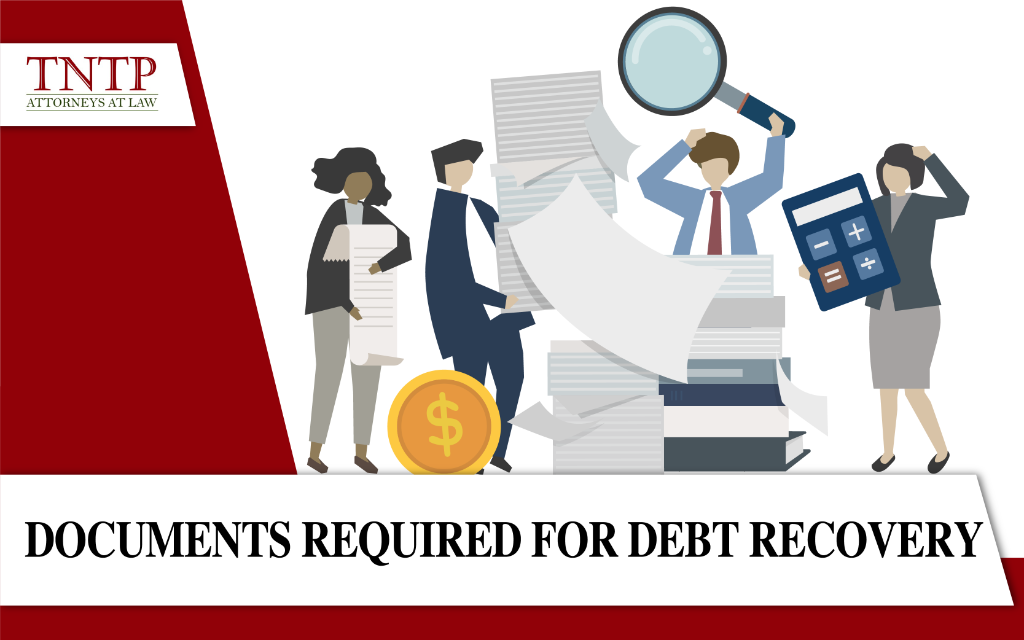To effectively carry out debt collection, businesses need to prepare documents and paperwork, as well as financial resources and time to pursue the debt recovery process to the end. To support businesses with the knowledge to carry out the debt collection process, in this article, TNTP will provide insights into important debt collection documents that businesses need to prepare.
1. Contracts between the parties involved
One of the first debt collection documents that businesses need to prepare is the contract from which the debt of the debtor arises. This is the basis for the business to demand that the debtor fulfill the obligation to pay, as, from the moment the contract is concluded, the rights and obligations of the parties arise.
In addition, some contracts also specify the penalties for violations, payment obligations, payment periods, and dispute resolution agencies. Based on these provisions, businesses can demand that the debtor pay them, as the terms were agreed upon in good faith and voluntarily by the parties. In case the business initiates a lawsuit in court or a commercial arbitration center, these agencies will rely on the contents of the contract to consider whether the business’s request is reasonable and whether the debtor is eligible to be required to repay the debt or not.
2. Delivery receipt and invoice
These are debt collection documents that prove that the business has fulfilled its obligations, whether it is the obligation to deliver goods or the obligation to pay. Based on these documents, the business has a basis to prove that it has fulfilled its obligations under the contract, or to what extent the debtor has fulfilled their obligation, from which the business can demand the payment of money or assets from the debtor.
In addition to ensuring the fulfillment of obligations between the business and the debtor, issuing invoices also demonstrates that the buying and selling process and the use of services are legal and have clear evidence. Because if the buying and selling activities between the parties do not issue invoices in accordance with the law, they may be penalized under the provisions of the law. Businesses need to prepare these documents to ensure their interests.
3. Debt reconciliation agreement
A debt reconciliation agreement is a crucial document in the litigation process because it records the debt between the debtor and the business, the process of the debt arising, and the payments made. Furthermore, this document shows the verification of the debtor regarding the debt owed to the business. If the business can compel the debtor to sign this document, it will make the debt recovery process much more convenient. As dispute resolution agencies often consider the debt reconciliation agreement as an important document to determine the debtor’s payment obligations, as the debtor has acknowledged the debt in the document, they will have an obligation to make payment to the business.
4. Debt recovery documents contain information about the debtor’s address and bank account.
This is the information to serve the contact process, send official letters, and determine the court with jurisdiction over the business’s lawsuit in the event of the debtor filing a lawsuit. In addition, determining whether the debtor still operates at the registered address will help the business evaluate the debtor’s ability to pay, whether it is good or bad. In case the business determines that the debtor no longer operates at the registered headquarters, they can request the competent tax authority to inspect the headquarters address according to the provisions of the law as a form of warning to the debtor.
5. Debt recovery documents related to the content of exchanges between parties in the contract execution process.
In the process of executing a contract, if the business and the debtor have any issues that need to be resolved or exchanges about goods, the request for payment is usually made through correspondence such as official letters, emails, or messages. If the business wants to use debt recovery services or request competent authorities to resolve the case, they need to provide this information and documents because these are the clearest evidence of the content of the case, why the debt arose, and how much money is involved. If the business prepares these documents, it will create favorable conditions for debt recovery companies and dispute resolution agencies to understand the content and progress of the case and from there, come up with objective and effective solutions to protect the business’s interests.
The above is TNTP’s sharing of the necessary debt recovery documents that businesses need to prepare. Hopefully, this article is helpful to businesses.
Best regard.







